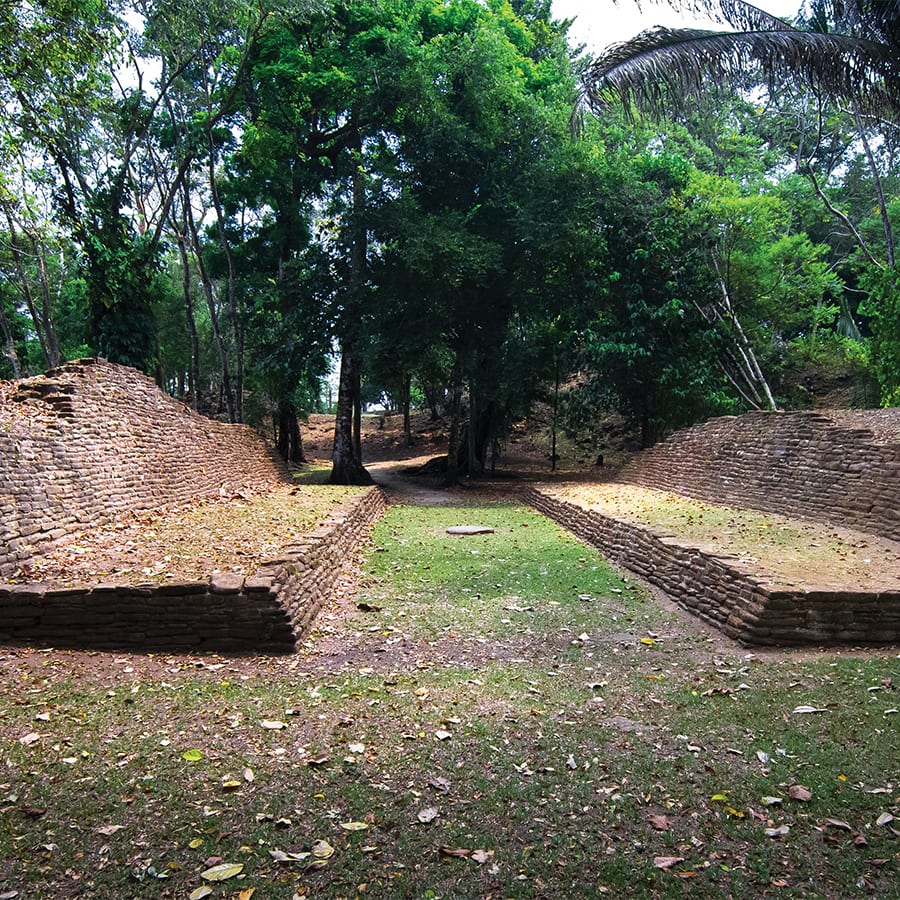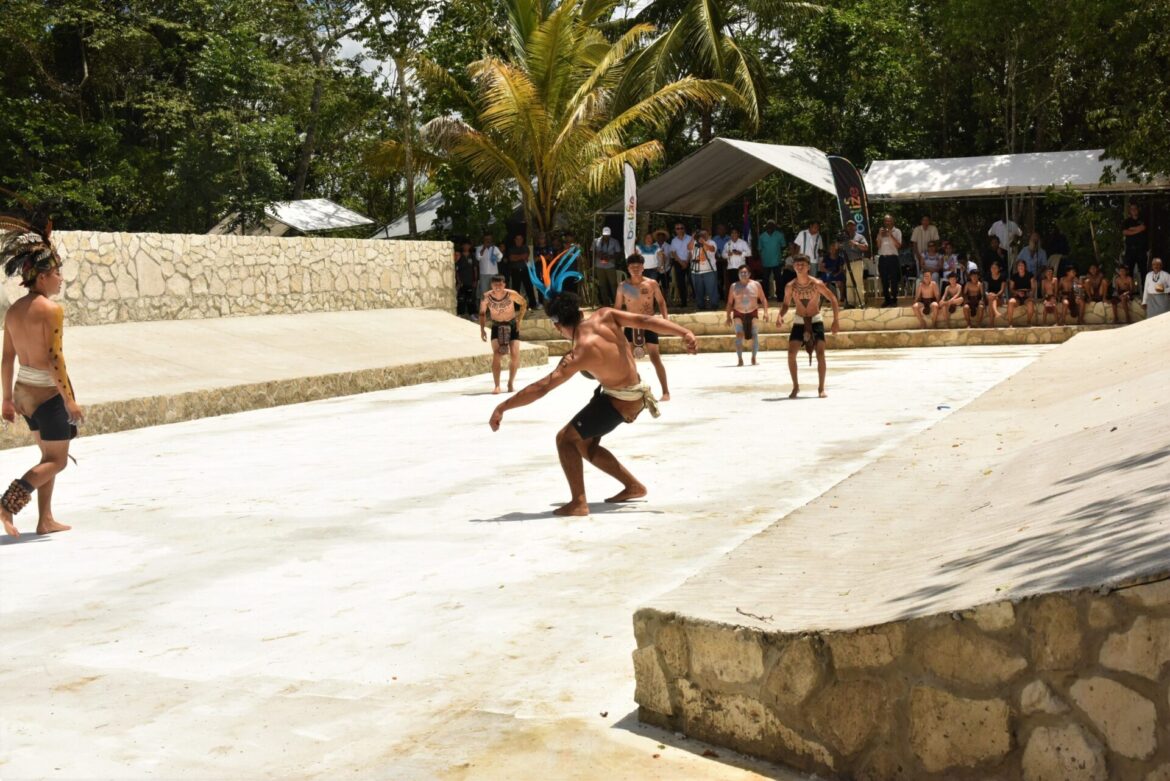More than a thousand years ago, Maya priests and governors would gather at the base of temples to watch the ballgame called Pok-Ta-Pok. During, players from two opposing teams would aim to keep a heavy rubber ball – weighing up to 8 lbs (4 kgs) at times – off the ground. With just their hips, knees, and elbows, they would send the ball soaring through a vertical hoop at the court’s center. It was truly a test of physical prowess, and the same still stands true today. In Mexico and Central America – the countries of Mesoamerica – life is being breathed once again into this ancient Maya ball game. And come this December, Belize will be host to the Pok-Ta-Pok World Cup Tournament.
A Brief History of Pok-Ta-Pok

An ancient Pok-Ta-Pok court at Nim Li Punit in Toledo, Belize.
With origins dating back to the pre-Spanish era, the Maya ballgame of Pok-ta-Pok is one of the world’s earliest known sports. The ritual ballgame was of the utmost importance in Maya societies – having often been used as a way to settle disputes and prevent war. It was also played, however, for fun during festivals or at coronations.
It was long believed that the ancient ball game was no longer played, having been banned by Spanish conquistadors after their arrival. But over the years, that has been changing. Across Mexico and Central America, there has been a slow revival of Pok-ta-Pok game.

A game of Pok-Ta-Pok being played in Mexico, 2006. Source: Wikimedia Commons
Fun Fact: While some believe that at the end of every Pok-Ta-Pok game, the losers (or the winners, depending on the story) were sacrificed, this isn’t entirely true. Only when a game was played to prevent two cities from going to war would the captain of the losing team have been killed. And even then, they could have been allowed to live if the losing city agreed to supply the winner with valuable artifacts and goods.
Today, reenactments of the Pok-ta-pok ceremony can be observed by tourists in all parts of Mexico and Central America. But perhaps the biggest form of revival of this ancient game is in the biennial World Cup Tournament.
Belize Inaugurates Its First Modern Pok-Ta-Pok Ball Court

Photo courtesy of the Belize Tourism Board
Upon visiting sites like Xunantunich in Cayo and Nim Li Punit in Toledo, travelers will come across remnants of the courts upon which the Maya used to play this ritual ball game. They provide a glimpse into the past – allowing the history buff and the curious adventurer to stand where the ancient Maya once stood, imagining what it was like to play.
Earlier this month though, Belize inaugurated its first-ever contemporary pok-ta-pok court in preparation for this year’s world cup. The Ts’unu’un Pok-ta-Pok Ball Court sits in the Orange Walk District in northern Belize. According to the Belize Tourism Board, the court will not only offer competing teams a place to practice, but it will also serve as a location where travelers can continue to experience demonstrations of the game.
The first-ever Pok-Ta-Pok World Cup Tournament was held in Yucatan, Mexico in 2015. Now, all eyes are on Belize for the fifth iteration, set to take place on December 7th.
All Eyes Are on the 2023 Pok-Ta-Pok World Cup

Ek’ Balam is Belize’s Pok-ta-pok champions. Photo via Facebook
To those who follow the Pok-Ta-Pok World Cup Tournament, it may come as no surprise that Belize has been chosen to host this year’s competition. Ek’ Balam – the team that has represented the country in the competition over the years- are three-time world champions.
Fun Fact: Ek Balam means black jaguar in Yucatec Maya.
- Photos by Ambergris Today
This year, a total of eighteen teams, hailing from Belize, Guatemala, El Salvador, Honduras, Panamá, Mexico, and the United States are expected to compete. Ek’ Balam will be joined by another team from Belize – Kinich Ahau. This year’s competition will also include, for the first time ever, a women’s category.





















